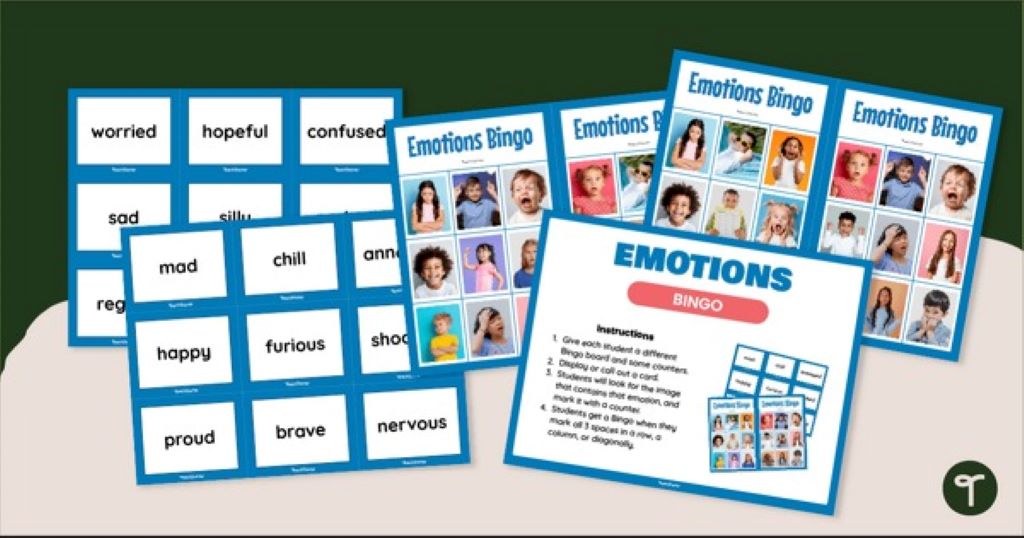Gaming has evolved beyond simple entertainment into a medium that explores complex human experiences. Today’s players seek more than flashy graphics or mindless action. They want games that mirror real-life challenges and emotional growth. This demand has given rise to emotional challenge resource management games, a genre that combines strategic gameplay with meaningful psychological experiences. Industry experts at Engineers Network have noted this trend’s significant impact on game development and player engagement.
These games challenge players to navigate difficult scenarios while managing limited resources, creating authentic stress and decision-making pressure. Unlike traditional games that offer pure escapism, emotional challenge resource management games force players to confront realistic problems. The struggle simulator game genre exemplifies this approach by presenting players with everyday hardships that require careful planning and emotional resilience.
The appeal lies in the games’ ability to create safe spaces for experiencing and overcoming adversity. Players can practice problem-solving skills, develop emotional intelligence, and build resilience without real-world consequences. This makes them valuable tools for personal growth and stress management.
Understanding the Psychology Behind Struggle-Based Gaming
Emotional challenge resource management games tap into fundamental psychological needs that many people experience in their daily lives. These games provide controlled environments where players can face difficulties and emerge stronger. The psychological appeal stems from several key factors that resonate with modern audiences.
First, these games offer a sense of agency in challenging situations. Many people feel powerless when facing real-life struggles like financial hardship, relationship problems, or career setbacks. Struggle simulator games give players control over their responses to similar challenges. They can make decisions, see immediate consequences, and adjust their strategies accordingly.
Second, the games provide validation for difficult experiences. Players often find comfort in seeing their real-life struggles represented in gaming. This representation helps normalize challenging emotions and experiences, reducing feelings of isolation or inadequacy. The games acknowledge that life can be difficult and that struggling doesn’t indicate personal failure.
Third, these games create opportunities for skill development in low-stakes environments. Players can practice decision-making, resource allocation, and emotional regulation without risking actual consequences. This practice builds confidence and competence that can transfer to real-life situations.
Core Mechanics That Define the Genre
Emotional challenge resource management games share several distinctive mechanics that separate them from traditional gaming experiences. These mechanics work together to create authentic emotional responses and meaningful gameplay experiences.
Resource scarcity forms the foundation of most games in this genre. Players must carefully manage limited money, time, energy, or other valuable commodities. This scarcity creates tension and forces difficult choices that mirror real-world constraints. Every decision carries weight because resources are precious and mistakes have lasting consequences.
Branching narratives allow players to see how their choices impact their virtual lives. These games rarely offer clearly “right” or “wrong” answers. Instead, they present complex scenarios with multiple valid approaches and varied outcomes. This complexity reflects the ambiguous nature of real-life decision-making.
Emotional states play crucial roles in gameplay mechanics. Characters might become stressed, depressed, anxious, or overwhelmed based on circumstances and player choices. These emotional states affect performance and available options, creating realistic feedback loops that mirror psychological responses to stress.
Time pressure adds another layer of challenge that reflects real-world urgency. Players often face deadlines, aging characters, or deteriorating situations that require quick thinking and decisive action. This pressure prevents overthinking and forces players to make imperfect decisions with incomplete information.
Popular Themes and Settings
Emotional challenge resource management games explore diverse themes that resonate with different player experiences and concerns. These themes provide frameworks for meaningful gameplay while addressing relevant social and personal issues.
Economic hardship represents one of the most common themes in this genre. Games might challenge players to survive on minimum wage, escape poverty, or navigate unemployment. These scenarios help players understand systemic challenges while developing practical financial skills. The struggle simulator game format works particularly well for economic themes because it emphasizes the daily grind of financial survival.
Mental health challenges appear frequently in these games, addressing topics like depression, anxiety, addiction, and trauma recovery. These games can help reduce stigma around mental health issues while providing insights into the recovery process. They show that mental health struggles are complex, ongoing processes rather than simple problems with easy solutions.
Family dynamics create rich gameplay opportunities as players navigate relationships, childcare responsibilities, and generational conflicts. These games explore how personal struggles affect family members and how family support systems can help or hinder individual growth.
Career and education challenges focus on professional development, skill building, and workplace navigation. Players might struggle with demanding bosses, career transitions, or educational barriers. These scenarios help players practice professional skills and explore career paths in risk-free environments.

Benefits for Player Development
Playing emotional challenge resource management games offers numerous benefits that extend beyond entertainment value. These benefits make the genre valuable for personal development and emotional growth.
Emotional intelligence development occurs naturally as players navigate complex interpersonal situations and manage their characters’ emotional states. Players learn to recognize emotional patterns, understand triggers, and develop coping strategies. This emotional awareness transfers to real-life situations, improving relationships and self-understanding.
Problem-solving skills improve through exposure to complex scenarios with multiple variables and no perfect solutions. Players develop flexible thinking patterns and learn to adapt strategies based on changing circumstances. The struggle simulator game format particularly excels at building these skills because it presents authentic challenges that require creative solutions.
Empathy expansion happens as players experience different perspectives and life situations. Games might challenge players to navigate experiences outside their personal backgrounds, building understanding and compassion for diverse struggles. This expanded empathy improves social relationships and community engagement.
Resilience building occurs through repeated exposure to challenges and setbacks. Players learn that failure is temporary and recoverable, building confidence in their ability to handle difficulties. The games provide safe spaces to practice bouncing back from disappointments and adjusting expectations.
Stress management skills develop as players learn to handle pressure and uncertainty. The games teach practical techniques for managing overwhelming situations and maintaining perspective during difficult times. These skills prove valuable in real-world stress management.
Design Considerations for Developers
Creating effective emotional challenge resource management games requires careful attention to balance, authenticity, and player wellbeing. Developers must navigate complex considerations to create meaningful experiences without causing harm.
Authenticity versus sensitivity represents a crucial balance. Games should accurately represent struggles without exploiting or trivializing real suffering. Developers need extensive research and community input to ensure respectful representation of challenging topics.
Difficulty scaling ensures games remain challenging without becoming overwhelming or discouraging. Players should face meaningful obstacles while maintaining agency and hope for progress. The struggle simulator game approach works best when challenges feel surmountable with effort and smart choices.
Support systems within games help players process difficult emotions and experiences. Games might include resources, coping strategies, or positive character interactions that model healthy responses to stress.
Accessibility considerations ensure games remain inclusive for players with different backgrounds and abilities. Developers should consider how various player experiences might affect engagement with challenging content.
The Future of Emotional Gaming
The emotional challenge resource management game genre continues evolving as developers explore new technologies and themes. Virtual reality promises more immersive emotional experiences, while artificial intelligence enables more sophisticated character interactions and personalized challenges.
Mental health applications represent growing areas of development as healthcare professionals recognize gaming’s therapeutic potential. Future games might integrate with mental health tracking apps or provide structured therapeutic experiences.
Educational applications continue expanding as schools and training programs adopt game-based learning approaches. These games offer engaging ways to teach life skills, financial literacy, and emotional regulation.
Social gaming features allow players to share experiences and support each other through challenging gameplay. Community elements can enhance the games’ emotional impact while providing social connection opportunities.
Conclusion
Emotional challenge resource management games represent a significant evolution in gaming that addresses players’ desires for meaningful, authentic experiences. These games combine strategic gameplay with emotional depth, creating safe spaces for personal growth and skill development. The struggle simulator game format exemplifies this genre’s potential by presenting realistic challenges that build resilience and problem-solving abilities.
The psychological benefits of these games extend far beyond entertainment, offering opportunities for emotional intelligence development, empathy expansion, and stress management skill building. As the genre continues evolving, developers must balance authenticity with sensitivity while exploring new technologies and applications.
The future of emotional gaming looks promising as virtual reality, artificial intelligence, and community features enhance the depth and impact of these experiences. These games will likely play increasingly important roles in education, mental health support, and personal development as society recognizes their value beyond traditional entertainment.
Frequently Asked Questions
What makes emotional challenge resource management games different from regular strategy games? These games focus on psychological realism and emotional authenticity rather than just strategic complexity. They simulate real-life struggles and emotional responses, creating meaningful personal experiences alongside strategic gameplay.
Are struggle simulator games suitable for all ages? Age appropriateness depends on specific content and themes. Many games address mature topics like financial hardship or mental health challenges that may be more suitable for teen and adult audiences. Always check content ratings and descriptions.
Can these games help with real-life problems? While not substitutes for professional help, these games can build valuable skills like problem-solving, emotional regulation, and resilience. They provide safe spaces to practice handling difficult situations and can increase understanding of complex challenges.
How do developers ensure these games don’t exploit serious issues? Responsible developers conduct extensive research, consult with experts and affected communities, and include appropriate content warnings and support resources. They focus on authentic representation rather than sensationalism.
What should I look for when choosing an emotional challenge game? Consider your personal interests and comfort level with different themes. Look for games with positive reviews regarding authenticity and sensitivity. Check if games include content warnings and support resources for challenging topics.
Read More:


